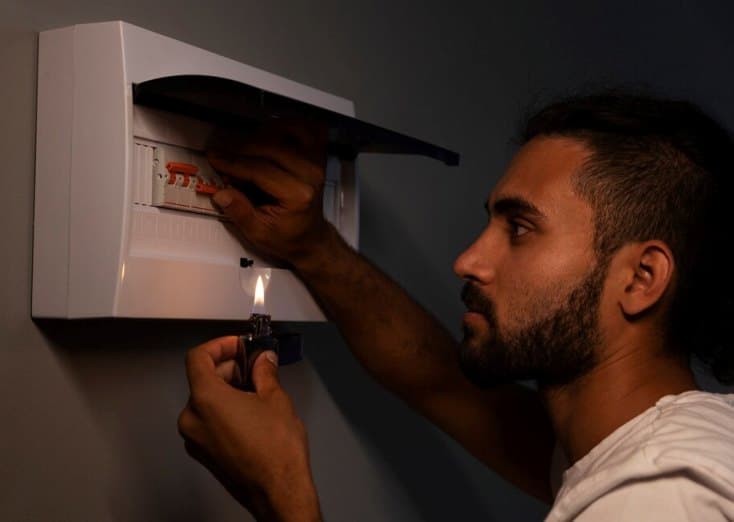If your lights frequently flicker or your circuit breakers trip frequently, it may be time for an electrical panel upgrade. Other signs include outdated panel models and a shortage of electrical outlets, indicating the need for increased capacity.
The safety of your home and the wellbeing of your family are paramount, making it important to consider upgrading your electrical panel if any of these factors apply. Upgrading to a newer, more advanced panel can provide a safer electrical system, prevent potential hazards, and ensure your home is equipped to handle your electrical needs.
Stay informed and consult with a qualified electrician to determine the right time to upgrade your electrical panel.
Signals Your Electrical Panel Needs to be Upgraded
Wondering when to upgrade your electrical panel? There are several signs that indicate it may be time to make this important investment. Being aware of these signs can help prevent electrical hazards, improve your home’s safety, and ensure adequate power supply for your growing electrical needs.
Frequent Tripping Of Circuit Breakers
If you find that your circuit breakers trip frequently, it is a clear indication that your electrical panel needs an upgrade. Tripping circuit breakers can be frustrating and an inconvenience, especially if it happens frequently.
This occurs when the current flowing through the circuit exceeds its capacity, causing the breaker to trip and cut off the power. Upgrading your electrical panel will provide higher amperage capacity and prevent these constant interruptions, allowing you to use multiple appliances without worrying about tripping breakers.
Read Also: Mistakes to Avoid for First Time Home Renovation Projects
Flickering Or Dimming Lights
Are your lights flickering or dimming regularly? This is not just an annoyance; it can also indicate problems with your electrical panel. Flickering or dimming lights can be caused by outdated or overloaded panels that struggle to meet the electrical demands of your home.
An upgrade will provide a stable power supply, preventing flickering lights and ensuring optimal lighting conditions throughout your space. Say goodbye to annoying moments of dim lighting and create a well-lit environment with an electrical panel upgrade.
Overheating Outlets Or Switches
Overheating outlets and switches are potential fire hazards. It’s critical to take quick action if you discover that your switches or outlets smell burning or feel hot to the touch.
Overloading from outdated electrical panels can cause these problems, leading to a higher risk of electrical fires. Upgrading your electrical panel will provide better heat management, reducing the chances of overheating outlets and switches. This upgrade ensures the safety of your home and the well-being of your loved ones.
Understanding The Capacity Of Your Current Electrical Panel
Understanding the capacity of your current electrical panel is crucial in determining when to upgrade it. By evaluating the panel’s age, condition, and the electrical demands of your home, you can make an informed decision to ensure the safety and efficiency of your electrical system.
Determining The Maximum Amperage Of The Panel
Your electrical panel is the heart of your home’s electrical system, responsible for distributing electricity to all the various circuits throughout your house.
Understanding the capacity of your current electrical panel is essential to ensure the safety and efficiency of your electrical system. One crucial aspect to consider is the maximum amperage of your panel.
The maximum amperage is the maximum amount of electrical current that your panel can handle without tripping the circuit breaker or causing an overload. To determine this, you’ll need to locate your panel and examine the main breaker. This breaker typically specifies the amperage rating of your panel.
If the main breaker is labeled 100 amps, for example, it means that your panel is designed to handle a maximum load of 100 amps. This information is vital as it serves as a baseline to evaluate whether an upgrade is necessary.
Assessing The Load Requirements Of Your Home
Now that you know the maximum amperage of your current electrical panel, it’s time to assess the load requirements of your home. Load requirements refer to the total amount of electrical power your house consumes on a regular basis. This includes all the appliances, lighting, and other electrical devices that are connected to your system.
To determine the load requirements, you can follow these simple steps:
- Create a comprehensive list of all the electrical devices in your home, along with their corresponding amperage ratings. You can find this information on the device’s label or in its user manual.
- Add up the amperage ratings of all the devices. This will give you an estimate of the total load your electrical system has to handle.
- Compare the total load with the maximum amperage of your panel. If the load exceeds the panel’s capacity, it’s a clear indication that you need to upgrade your electrical panel.
It’s important to keep in mind that going above the panel’s capacity may result in frequent circuit breaker tripping, electrical fires, or even damage to your appliances. Upgrading your electrical panel will ensure that your home can handle the demands of modern living safely and efficiently.
Benefits Of Upgrading Your Electrical Panel
Upgrading your electrical panel can offer numerous advantages, ensuring that your home remains safe, efficient, and equipped to meet your electrical needs. With an upgraded panel, you’ll experience:
Increased Electrical Capacity
When you upgrade your electrical panel, you’re giving your electrical system the ability to handle higher electrical loads. This means you’ll have more capacity to power appliances, devices, and equipment without fear of tripping circuit breakers or experiencing power outages.
As a result, you’ll enjoy a more reliable and efficient electrical system, keeping your home or business running smoothly.
Enhanced Electrical Safety
By upgrading your electrical panel, you’re ensuring that your system is equipped with modern safety features, such as arc fault circuit breakers Interrupters (AFCIs) and ground fault circuit interrupters (GFCIs). These features help protect against electrical hazards, providing a safer environment for you and your loved ones.
Check Also: How To Tell If a Light Bulb is a Camera?
Factors To Consider Before Upgrading Your Electrical Panel
Upgrading your electrical panel is a significant decision that requires careful consideration to ensure safety, functionality, and compliance with electrical codes. Here are several factors to consider before upgrading your electrical panel:
Hiring A Licensed Electrician
One of the most important factors to consider before upgrading your electrical panel is hiring a licensed electrician to do the job. While it may be tempting to attempt the upgrade yourself, it is crucial to remember that working with electricity can be dangerous and complicated.
A licensed electrician has the knowledge and experience to properly assess your electrical needs and ensure that the upgrade is done safely and correctly.
Estimating The Cost Of The Upgrade
Another factor to consider is estimating the cost of the upgrade. Upgrading an electrical panel can be a significant investment, and it is essential to have a clear understanding of the potential costs involved.
Factors that can influence the cost include the size of your home, the complexity of the installation, and any additional electrical upgrades that may be necessary. Consulting with a licensed electrician can help you get an accurate estimate for the project.
Checking For Necessary Permits
Checking for necessary permits is also crucial before upgrading your electrical panel. Electrical work typically requires permits to ensure that it complies with local building codes and safety standards.
Failing to obtain the necessary permits can result in fines and complications down the line, so it is important to adhere to the regulations. A licensed electrician can help you navigate the permit process and ensure that all necessary paperwork is taken care of.
Common Types Of Electrical Panels Available For Upgrade
When it comes to upgrading your electrical panel, it’s important to know the different types available to make an informed decision. There are three common types of electrical panels that you can consider for an upgrade: single-pole, double-pole, and sub-panel.
Single-pole Electrical Panel
A single-pole electrical panel is the most basic type of panel found in many older homes. It consists of a single circuit breaker that controls the power supply to each individual circuit.
This type of panel is suitable for smaller homes or apartments where the electrical demand is relatively low. However, as our modern lifestyles require the use of more electrical appliances and devices, a single-pole electrical panel may no longer be sufficient.
Double-pole Electrical Panel
A double-pole electrical panel, also known as a 240-volt panel, is a more advanced option for upgrading your electrical system. It features double-pole circuit breakers that provide a higher voltage capacity.
This type of panel is better suited for larger homes with increased power requirements, such as houses with multiple stories, extensive heating and cooling systems, or home offices with multiple electronic devices.
Sub-panel
A sub-panel is an additional electrical panel that can be installed in your home to supplement your existing main panel. It functions as a satellite panel, allowing for the distribution of power to specific areas or circuits.
This is particularly useful if you are adding new rooms or amenities to your home, such as a home theater, workshop, or spa. A sub-panel helps prevent overloading your main panel and ensures a more efficient distribution of electricity throughout your home.
To Sum Up
So, now you have a better understanding of when to consider upgrading your electrical panel. By keeping an eye out for signs of overload or outdated equipment, and consulting with a professional electrician, you can ensure the safety and efficiency of your electrical system.
Don’t hesitate to take action if you notice any warning signs. Your peace of mind and the protection of your home are worth it.

